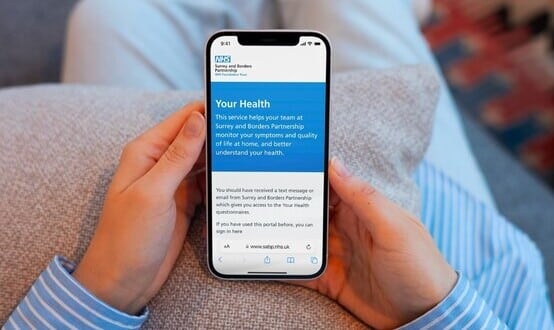Plymouth plans to go live with OpenEHR in next six months
- 26 April 2018

The CIO at University Hospitals Plymouth NHS Trust has said the organisation is planning to go live with an open source electronic health record (EHR) “some time between June and October” this year.
Andy Blofield confirmed his trust was plans to initially go live with an open-standards based electronic prescribing module, on a single pilot ward.
He added that he doesn’t have “all the information” as the technology is still “very new”. The trust is thought to be the first to go live with OpenEPR, the open standards electronic health architecture which is supported by Slovenian company Marand.
An Anglicised version of the e-prescribing module has been developed under the Code4Health initiative, including clinical assurance by NHS Digital.
It is hoped that by introducing an open platform in Plymouth, the trust can have true data independence and vendor neutrality.
Blofield also said he hopes this will be the first step to creating “one ecosystem involving other trusts” in the south-west of England.
And he mentioned the platform will be an “incremental investment” and will be about “avoiding unnecessary costs”.
Speaking at an event in September 2017, Blofield explained the approach was driven by financial necessity, as the trust had no money, adding “we had no options”.
Peter Coates, head of eco-system development at NHS Digital, said a platform is needed that apps can “coalesce around apps like Apple has with iOS”.
Coates also added that not being “locked into a vendor” means the “sky is the limit”.
Another aspect of the open platform involves working together with the University of Plymouth, which is leading a number of projects in Devon and Cornwall to create a ‘Digital Health Ecosystem’.
Arunangsu Chatterjee – director of technology enhanced learning and distance learning at the University of Plymouth – told attendees the university has been working with small and medium-sized enterprises to help built digital health innovations.
“It is about creating patient-centred care,” he said.





5 Comments
Happy for UHP with this announcement but other Trusts are already well on their way with this “apps like Apple has with iOS” strategy. In particular, one North-West Trust has an ‘App Store’ containing 80+ standard, 15 BI, and 60+ reporting apps up and running via an AD enabled CMS since 2011.
That too is great news but are these apps transferable to other Trusts, do they integrate with each other and the rest of the patient record? The promise of openEHR is that those apps will work against any openEHR-compliant back-end (CDR), irrespective of the underlying vendor or technology. And that the openEHR CDR provides a tightly integrated semantic datastore, capable of doing the job of a full EPR in due course. The ‘app store’ is only part of the story. The Apperta open platform paper explains the principles pretty well (which includes SNOMED, FHIR and IHE-XDS as critical parts of the mix). https://apperta.org/openplatforms Great to see Plymouth step up and join Salford GDE plus others to come.
Appreciate your provision of the additional information around the aims of openEHR. I, like the majority of my Informatics colleagues, am very excited at the prospect of making them a reality and will be looking forward to seeing Plymouth and the South West succeed on their journey.
In response to your query re integration and being transferable, the answer is yes on both counts. With the latter, although anything is technically possible, the biggest issue lies in whether other Trusts are willing to collaborate due to being tied-up with their existing strategies (and suppliers).
Great news. This is a good experiment and is far more meritorious of GDE status than a bunch of under-resourced NHS folk trying to make a [big US supplier] system work.
This is the sort of creativity that might get NHSD out of its current hole.
Why are you deleting comments which were previously posted against this article (as also happened with previous news articles on this topic?)
Comments are closed.